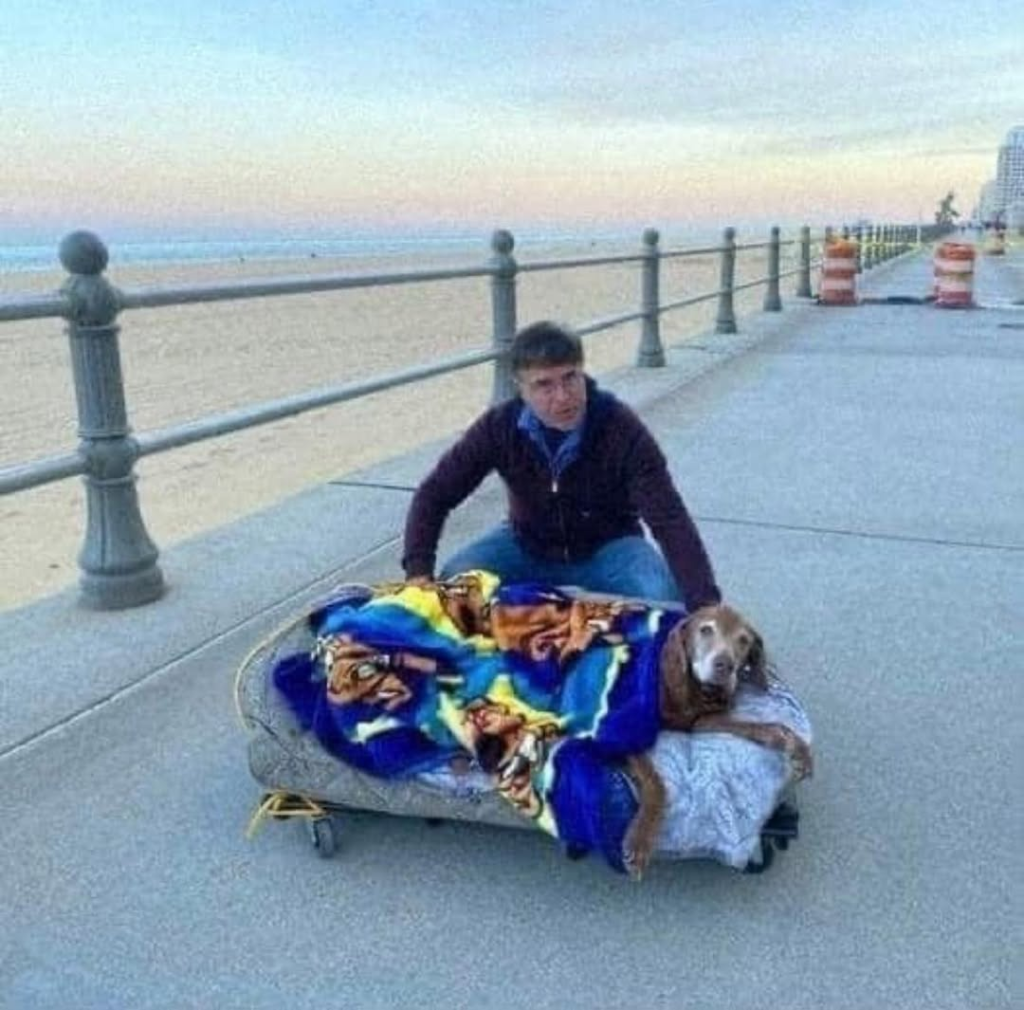It was a late summer afternoon, the sun leaning downward, casting golden light across the ocean. The breeze felt gentle, carrying with it the salty aroma of sea spray and the familiar hum of distant conversation. Mike and I had decided to take a slow ride — no hurry, just time to absorb the surroundings. The boardwalk was dotted with families, beachgoers, joggers, and the occasional artist sketching the view.
As we followed the wooden planks, hands on the handlebars, we noticed a man walking slowly on the far side. But something about him pulled us in — not because he stood out by attire or shout, but because of the quiet devotion in his motion.
He was walking his 14-year-old golden retriever. But this was no ordinary walk. The dog’s legs trembled; she moved slowly, uncertainly, as though every step was a small triumph. The struggle was obvious. Yet beside her, the man did not rush. Instead, he had fashioned something remarkable — a custom “bed” on wheels, a gentle, low platform with small wheels, adapted so the dog could rest on it and still be wheeled with dignity along the boardwalk.
He pushed or guided it carefully, making sure she could feel the breeze, hear the surf, sniff the air, see passersby. It was as if he were rolling her through what remained of the world she still wanted to taste. When we drew nearer, I could see how tenderly he leaned to speak to her, adjusting straps, shifting her weight, making sure she was comfortable.

I asked quietly: “How long has she had trouble walking?” His response came softly: “For a while now. She’s slowing down but she’s still with me.” He paused, glancing at the horizon. Then: “I wanted to make sure she still got to smell the ocean, feel the sun, enjoy life in her own way.”
I was stunned. I felt a lump in my throat. I thought: how many of us would stop to do something like this — not because someone sees us, but because we simply love? It wasn’t showy. It wasn’t dramatic. It was steady, humble, persistent care.
We slowed our bikes more. We watched him for several minutes, staying respectfully distant. The scene was quiet, almost sacred. He whispered to her. She looked at him with trusting eyes. A smile flickered on his face.
We turned a corner; I didn’t want to intrude further. But the image stayed with me: a man and his aging dog, traversing the last stretches of daylight together, refusing to let physical decline steal joy or dignity.
I thought about people I know, animals I’ve loved, the invisible acts of devotion we rarely hear about. I wondered how many others are doing something like this — small miracles, unnoticed, unsung.
Walking away, the memory burned in my chest. It reminded me of the power of simple kindness, the depths of loyalty, and the idea that love is often not loud but consistent.
If I met that man again, I would tell him: thank you. Thank you for reminding me what grace looks like.